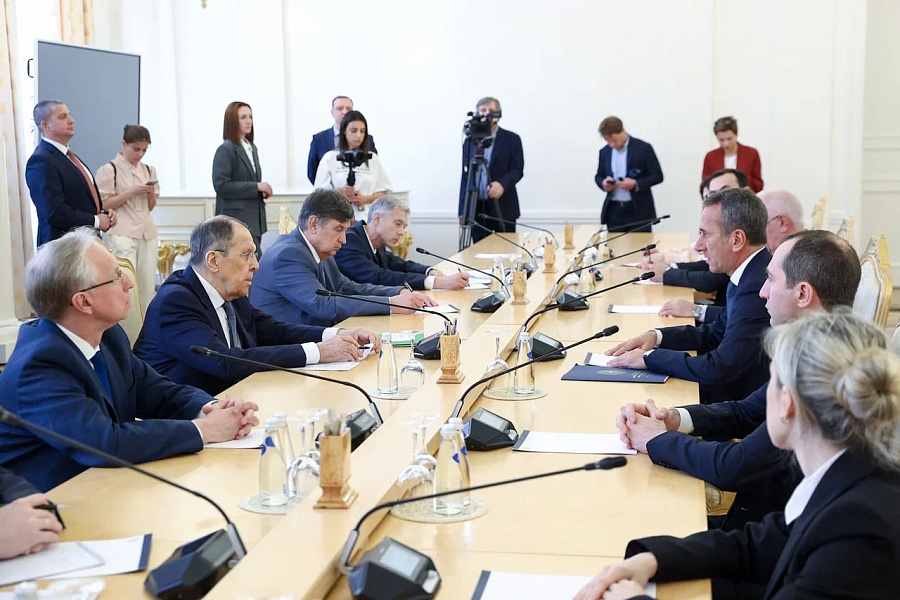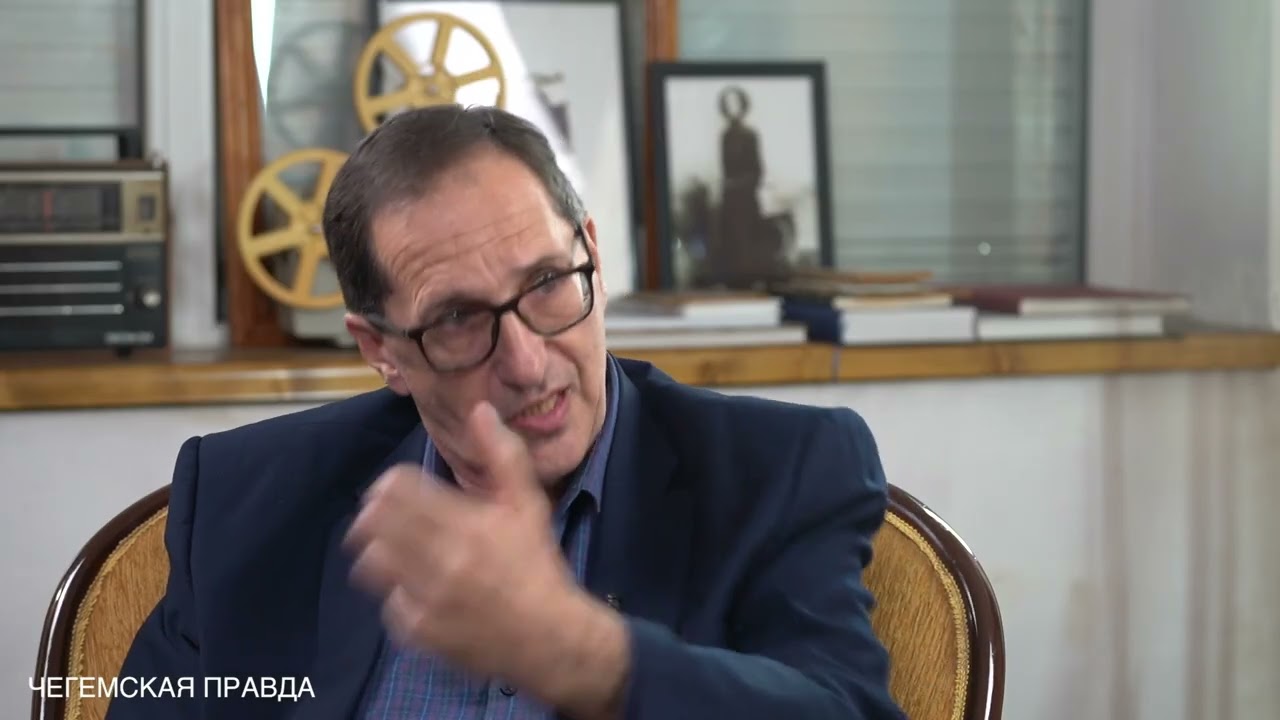A big scandal has been caused in Abkhazia by the decision of the government to transfer the state dacha in the famous seaside resort of Pitsunda into the possession of Russia. This is part of the reserve with an area of 184 hectares with a relic park of Pitsunda pine. The issue will be considered at the next session of Parliament, after July 18.
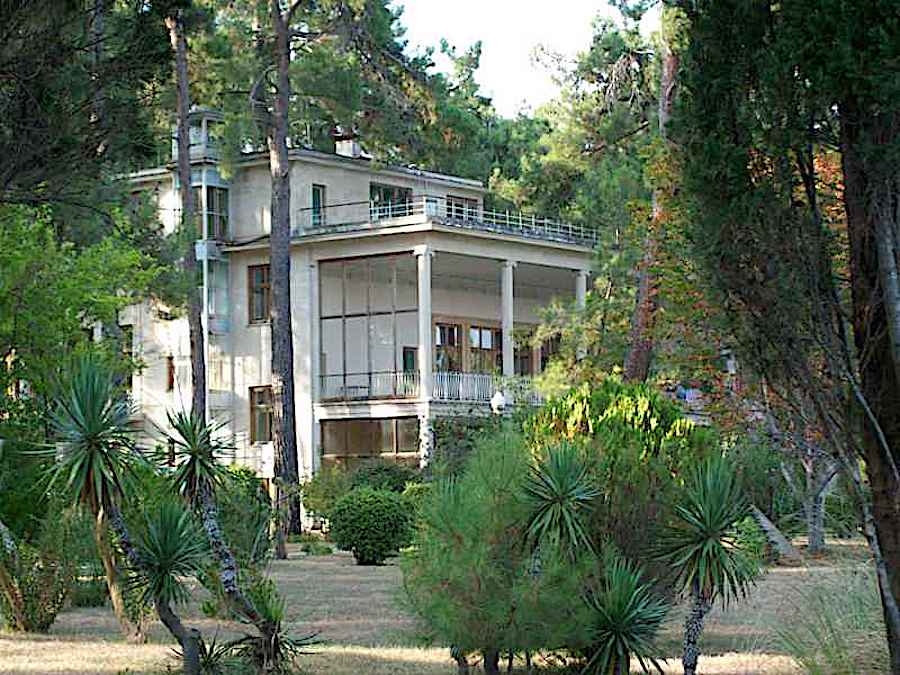
This is the former summer residence of Soviet leader Nikita Khrushchev. There, in the autumn of 1964, he was shocked to learn of his resignation as a result of a virtual coup d’état. In 1974, another Soviet leader, Leonid Brezhnev, met with French President Georges Pompidou at this state dacha. In August 2017, Vladimir Putin was staying there.
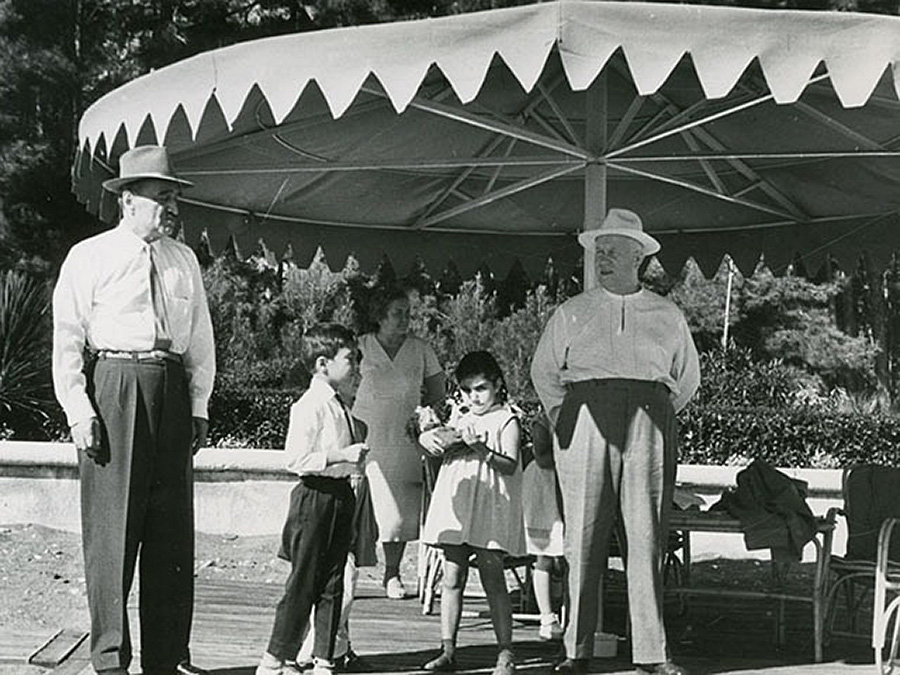
In general, there are five state dachas of Soviet leaders in Abkhazia, including Stalin’s dacha. There were several dozen such facilities in the Soviet Union. All of them were built during the Stalin period, from 1931 to 1949, and have almost the same layout. All objects are characterized by filigree interior decoration made of rare species of trees. Each state dacha was equipped with a unique security system.
On July 11, unexpectedly for society, it turned out that the agreement on the transfer of the territory was signed with Moscow on January 19, 2022. As experts say, no one would have known about this document for a long time, but the agreement needs parliamentary ratification in order to gain legal force.
The profile committee of the People’s Assembly, under the general indignation of the Abkhazian public, has already voted “for” the initiative.
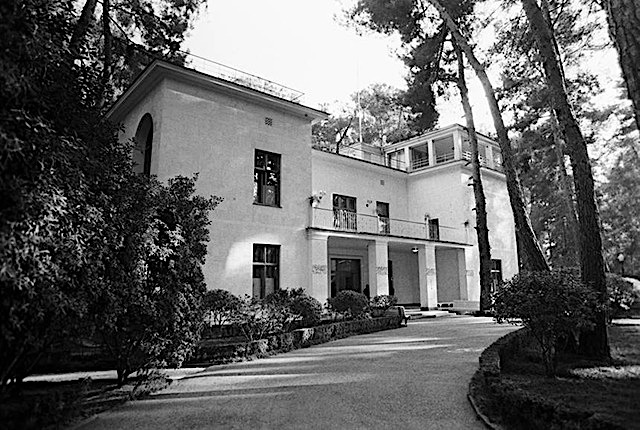
● The decision to donate 186 hectares of land with a relic park should be made by society, not the government.
● The territory is adjacent to the sea, and the transfer of the water area, even for rent, is impossible according to the constitution.
● The agreement does not provide for Russia’s obligation not to transfer the facility to third parties.
One of the opposition leaders Aslan Kobakhia, protesting against the decision, said that “the Abkhazian state owes nothing to anyone”.
Experts remind that “Moscow will have at least a mirror response to such rhetoric:
“We don’t owe you anything either: no salaries, no pensions, no restoration of infrastructure, no stolen and embezzled loans, nothing, we don’t even owe you tourists, we have our own Sochi. We understand your desire, but we can no longer fulfill your requests”. And a big fat full stop will be put in our sovereignty, because the republic, sandwiched between Russia and Georgia and with a dead economy, simply has nowhere to go.”
Historian Astamur Tania and editor of JAMnews in Abkhazia / editor of the Chegemskaya Pravda newspaper Inal Khashig discussed the problem in the new issue of the Conversation program.
Astamur Tania was a political aide to the first president of Abkhazia, Vladislav Ardzinba. In 2014-16, he led the administration of President Raul Khajimba.
● A natural, historical and cultural reserve is being transferred to Russia. This territory has a gigantic historical and moral significance for Abkhazia. Therefore, the authorities had to explain to their partners in Russia that “yes, we understand your desire, but, unfortunately, we cannot fulfill it”.
● This opinion should have been conveyed to Moscow more insistently. There are no examples when Abkhazia would not be able to resolve issues in the course of a dialogue with the Russian side.
● If we continue to act in the same direction, political destabilization will begin in Abkhazia. And there will be good reasons for this.
● The authorities should strive to strengthen their legitimacy. Such questions should not be raised. And now we need to find ways out of this situation.
● This agreement does not regulate economic, political or military relations between Abkhazia and Russia. It is only a matter of owning a large piece of land.
● Refusal to transfer the territories cannot affect the long-term political relations between Abkhazia and Russia.
● The authorities are mistaken if they think that they can solve any issue in the parliament, because they allegedly got full control over the parliament, having achieved the presence of “their” people there.
● If the agreement is ratified, significant damage will be done to the political positions of the current government and parliament. This will affect the ability of the government and parliament to manage the situation.
● “If the people condemn you, where will you go? It’s better to lose your job, I guess.”

